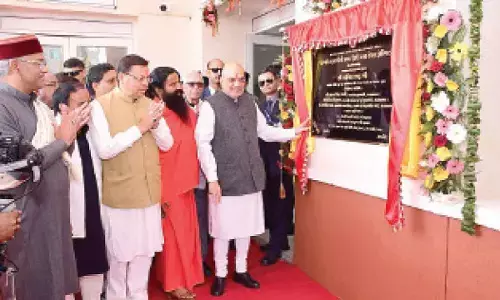Mediation pacts legally binding now

The much-awaited Mediation Bill 2021 was finally approved by Rajya Sabha on August 1, equalising the Mediation Settlement Agreements with the court decrees
The much-awaited Mediation Bill 2021 was finally approved by Rajya Sabha on August 1, equalising the Mediation Settlement Agreements with the court decrees. It is anticipated that the mediation legislation will provide relief to industry, business, and families from the delays of courts in resolving disputes, or in the parlance of legal luminaries, litigations. The mediators assert that only disputes are brought to them, and not the litigations.
Neither mediators nor mediation institutions, are responsible for resolving litigations. Leaving the argument unchanged, India’s Mediation legislation provides a legal foundation for institutional mediation.
Pre-institutional mediation that is mediation before approaching a court is strongly advocated in the current legislation. Accordingly, the Mediation Bill aims to reduce the burden on courts by encouraging disputants to resolve their own disputes with the assistance of trained mediators and mediations facilitated by authorized Mediation Institutions.
The bill goes the additional mile by giving the mediation settlement agreement or mediation settlement deed the status of a court’s decree. To elaborate, if two parties go to a mediation institution, have their dispute mediated, resolve their dispute, reach a consensus on the issue, and write down their own terms and conditions, the mediator will attest to them. It will become a court order that is legally enforceable. The law encourages low-income individuals, MSMEs to settle their disputes amicably rather than resorting to litigation.
The key takeaways from the measure are either pre-intuitive mediation in commercial or family disputes. The mediation is a stand-alone law that governs the mediation of disputes between parties willing to settle them amicably. It appears to be a boon for many micro and medium enterprises (MSMEs), families, and others seeking to save money, time, and relationships. However, there is a great deal behind it regarding mediators, mediation institutions, disputants, and advocates.
When the first Mediation Centre was established in the District Courts of Delhi, the practicing advocates in those courts viewed it as a threat. However, after much persuasion and mediation training, today’s advocates across the country, despite feeling threatened by alternative dispute resolution mechanisms, participate in mediation proceedings and get trained under the guidelines of the Supreme Court of India’s Mediation and Conciliation Project committee. Advocates continue to be concerned about their clients’ reluctance to resolve their disputes through assisted mediation.
Although the Mediation law encourages the assisted settlement of disputes between disputants, the institution of such assistance as recommended by the law is imperfect. Alternative Dispute Resolution (ADR) systems that are being promoted in our country are hampered by an abundance of institutional mechanisms, bureaucratic procedures, and redundant approaches.
The Arbitration and Conciliation Act of 1996 already encourages institutional arbitration for outside court dispute resolution. The 2021 amendments to establish an Arbitration Council of India to regulate Arbitration Institutions and arbitration processes have not been implemented. In addition, the current legislation suggests the establishment of the Mediation Council of India for the purpose of regulating mediation processes and institutions.
In addition, the current law requires that “for the purposes of record, any mediated settlement agreement reached between the parties, other than those reached in a court or tribunal-referred mediation or award of Lok Adalat or final award of Permanent Lok Adalat under section 21 or section 22Eof the Legal Services Authorities Act, 1987, shall be registered with an Authority constituted under the Legal Services Authorities Act, 1987, in such manner as may be specified.”
This not only calls into doubt the secrecy of the mediation agreements, but also creates bureaucratic obstacles for the registration of settlement deeds. The objective is to reduce the court’s workload, time consumption, and expenses. The proposed mediation institutions must first be registered with the mediation council of India, and then all mediation agreements will be submitted to the authorities that will be established pursuant to the Legal Services Authorities Act of 1987. In addition, ADR mechanisms consist of Arbitration, Mediation, Conciliation, and Negotiation. One law and one regulatory body for entire Alternative Dispute Resolution (ADR) mechanism can replace the mediation council, the arbitration council, the mediation law, the arbitration law, and the conciliation law.
Prioritize simplicity and accessibility over the addition of monolithic institutions to the already existing institutions. Nonetheless, the mediation legislation will be a boon for those interested in amicable dispute resolution, and more so for the disputes of MSMEs and families.
(Writer is Former Senior Advisor, United Nations
Development Programme)








